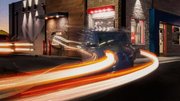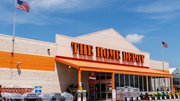News
Of soccer upsets and kiosk projects
For those that got a good night's sleep and missed it, a World Cup shocker on the other side of the world taught a valuable lesson of self-belief and passion to the kiosk industry.
June 6, 2002
Most of the American public was sound asleep on June 5 when the United States national soccer team took the field against Portugal in its opening World Cup match. That was their loss.
For the maniacs like myself, who either stayed up all night (West Coast) or got up insanely early (East Coast), the reward was arguably the greatest victory in U.S. soccer history, a 3-2 shocker over one of the World Cup favorites. And the adrenaline buzz the game generated was enough to keep most of us going through the next workday - though the June 6 collapse of said buzz was a DT for the ages.
 |
KIOSKmarketplace.com editor John Harrell |
In the long term, the victory does not assure the U.S. anything but one great victory to dwell on in years to come. Losses or ties in its other two first-round games, against host South Korea and Poland, could still consign the U.S. to its customary early exit from the tournament.
But it was the method of the victory, not the final result on the scoreboard, which is giving me an excuse to lay a soccer metaphor on the kiosk industry. Stick with me, because the story of the U.S. soccer team's victory over Portugal is a how-to-succeed-in-business allegory for the kiosk industry.
A question of belief
The U.S. victory, a product of great defensive play, an explosive opening 35 minutes of attacking soccer, and solid goalkeeping, started with the coach, Bruce Arena.
Arena is unique among most soccer coaches in the United States in that he has always succeeded. He won a gob of NCAA men's soccer titles at the University of Virginia and a pair of Major League Soccer championships with D.C. United.
When Arena was named U.S. national team coach in 1998, he brought a measure of success to the coach's box at a time when the team was reaching a nadir. U.S. men's soccer has always dealt with an inferiority complex. While other nations have the depth of professional leagues to groom national team stars, the U.S. for decades turned to the college system.
The "We're-not-as-good-as-they-are" complex manifested itself at the 1998 World Cup. Coach Steve Sampson, having created emotional havoc for his players by dropping popular team captain John Harkes for the tournament, adopted defensive tactics for the tournament. The message to his players: I don't trust you to play winning soccer. The result: three games, three losses, one goal scored.
But Arena is of different stock. Faced with the challenge of Portugal, ranked fifth in the world by the sport's governing body's computer rankings, Arena chose daring. He put a pair of quick, skillful 20-year-olds, Landon Donovan and DeMarcus Beasley, in the lineup. He dropped one of his defenders and inserted another quick player, Frankie Hejduk.
By making these changes, Arena sent a message: I believe in you, I don't care if we are playing Portugal. Go play the soccer I know you can play.
After 35 minutes, the U.S. led 3-0. ESPN commentator Jack Edwards cried out "This is stopping traffic all over Europe," and an upset victory was on the way.
GOALLLLLLLLLLLL!!!!!!!!
A winning effort by the U.S. was inspired by the confidence and winning attitude of the coach. Seek glory and it will come to you was Bruce Arena's inference. His team literally took the ball and dribbled with it.
Have an opinion? Do you agree with this commentary? Do you disagree? If you have a passionate opinion about this commentary, please drop us a line at editor@networldalliance.com and we will include your comments in a Reader Feedback section at the bottom of this page. |
The kiosk industry can learn from this and should adopt a similar attitude. Interactive kiosks are a technological application with the potential to achieve worldwide ubiquity. But like any industry in its nascent stages, it needs an occasional Stuart Smalley. Just look in the mirror and remind yourself that you are good enough to make an impact on the technological landscape. And dang it, people like kiosks.
Does the kiosk industry need a Bruce Arena? Not necessarily so. The dynamics of the industry are different. Arena coaches one team, a group of 23 players. The kiosk industry is a wide network of companies offering different services and applications within the kiosk sector.
The closest the kiosk industry comes to a Bruce Arena is probably Craig Keefner, executive director of industry trade group Kiosks.org Association. But while Keefner is an evangelist for the kiosk industry, he cannot pick the 11 players to start the game, so to speak. It is up to individuals within kiosk companies to spread the word, to push the message that kiosks should be a vital part of everyday life.
The nice thing is that there are a lot of people out there pursuing those goals. Obviously they have to -- no business means no paycheck eventually -- but there is a difference between doing your job by the numbers and doing it with passion. The players in this industry with a fervor for kiosks are the ones that will help this industry move forward.
In more than 20 years of following soccer, "the beautiful game" soccer people like to call it, the sport's competitiveness and passion have made it a metaphor for many things. There is no reason why kiosks cannot follow the sport's, specifically Bruce Arena's, lead.












